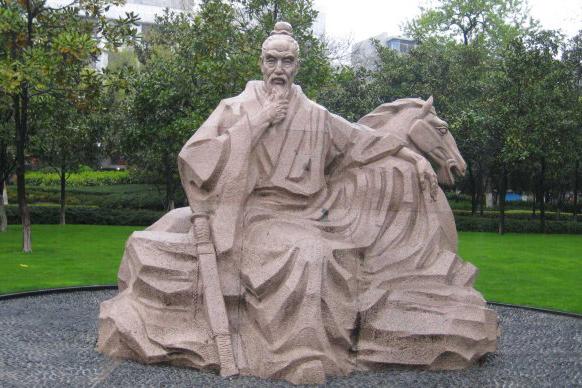Fan Zhongyan was a prominent politician and a famed poet and writer during the Northern Song Dynasty (A.D. 970-1127). A saying of his, “Be the first to feel concern for others and the last to enjoy yourself,” has become immortal in history and serves as a true reflection of his life.
During the second year of Emperor Renzong’s rule in 1033, there was widespread famine. Fan Zhongyan petitioned the court for assistance, but the court turned a deaf ear.
Fan asked Emperor Renzong face to face: “What would you do if there was no food in the court? A lot of people are starving right now.”
The emperor then sent him out to pacify the victims. Fan opened up the government food warehouse for the victims and partially exempted those areas from taxes.
Fan also brought back the weeds that victims of the famine had been feeding on, to present to the emperor so he could bring them to the privileged class in the courts for them to understand the hard times of the general public.
In 1035, when Fan was a governor in his hometown of Suzhou City, he bought a piece of land for home construction.
After a feng shui master checked the land, he congratulated Fan and said: “This is a blessed land, and if you build a house here, you will give rise to generations of high-ranking officers among your descendants.”
Instead of occupying the blessed land alone, Fan Zhongyan established a school there and hired outstanding lecturers to run courses. It generated a lot of talent and became a phenomenon for others to follow. Thus, in the generations to come, people called Suzhou the leading place for schooling.
Fan petitioned for people all his life. Because of his bold approaches, he was demoted many times and was sent to other places when he offended the ruler. Wherever he governed, people were grateful for his benevolent deeds, and they posted his portrait in temples to pay tribute to him even while he was alive.
One of his friends urged him to keep silent in order to hold on to his own position. In reply, he wrote that it is “better to remonstrate and die, than keep silent and live.”
This illustrates how ancient scholars kept their noble spirit, speaking out for the people as part of their moral responsibility and mission.
The usual saying is that “richness will not be passed down to more than three generations.” However, the family of Fan prospered for over eight hundred years. The four sons of Fan Zhongyan were all talented and virtuous, and Fan’s descendants always remember their ancestor’s teaching to “accumulate virtue through kind deeds.”
Edited by Sally Appert




